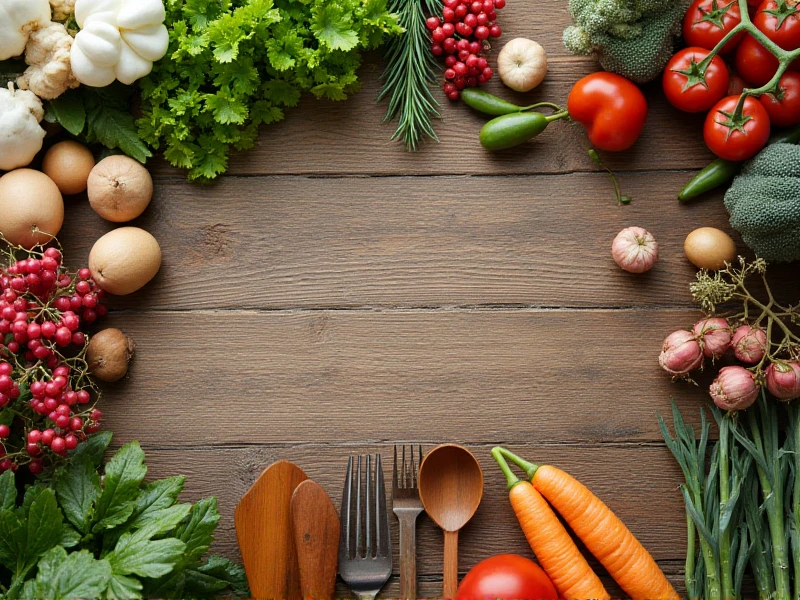Ultimate Guide to Essential Utensils for Your Modern Kitchen
2025-06-07

Utensils are the unsung heroes of every kitchen. Whether you're whipping up a quick meal or hosting a dinner party, the right eating tools can make all the difference in how you experience food. In this guide, we'll dive into what utensils are, why they're indispensable, and how to choose the best ones for your needs. You'll discover practical tips for everyday use and learn how investing in quality kitchenware enhances both convenience and hygiene. So, let's explore the world of forks, spoons, knives, and more—because great dining starts with great utensils.
When most people hear "utensils," they think of the basic trio: forks, spoons, and knives. These essential eating implements serve as your first line of defense in turning food into enjoyable meals. But utensils extend beyond just tableware. Include cooking options like spatulas, tongs, and ladles, which help you prepare dishes safely. Each utensil plays a specific role; for instance, forks are ideal for stabbing foods like salads, while spoons handle liquids like soups beautifully. In today's diverse culinary landscape, you might also embrace specialty items like chopsticks or serving forks—perfect for adding flair to international cuisines.
The materials used in utensils impact their durability and safety. Stainless steel is a popular choice because it's rust-resistant and easy to clean, making it a reliable option for everyday tasks. If you're eco-conscious, bamboo or wooden utensils are sustainable alternatives that feel natural in hand. For lighter uses or on-the-go situations, plastic options are affordable and versatile, though they may not last as long. Always opt for BPA-free varieties to avoid chemical risks. Remember, the best utensil materials depend on your needs: heavy-duty meals call for metal, while picnics favor disposable bamboo for minimal waste.
Why spend time choosing the right utensils? First off, they promote better food hygiene. Using separate, clean tools prevents cross-contamination and supports healthy habits— imagine a dedicated serving spoon for communal dishes keeping germs at bay. Quality utensils also save you money in the long run. Instead of constantly replacing cheap versions, invest in durable sets that withstand years of washing. Plus, they boost efficiency: well-designed items like ergonomic forks reduce hand strain during meals. Beyond function, utensils add aesthetic appeal. Modern designs in sleek finishes transform your dining table, creating an inviting atmosphere for family gatherings or solo breakfasts.
For optimal results, select utensils based on your lifestyle. Start by assessing common uses: if you cook frequently, stock basic tools like tongs and spatulas for stirring hot pots. For a minimalist setup, a core set of forks, spoons, and knives works wonders. Consider ergonomics, too—handles should fit comfortably to prevent slips and spills. Shopping online? Read user reviews to gauge quality. Brands like OXO or Zwilling offer balanced choices, blending affordability with superior craftsmanship. Aim for multipurpose items to save space; a versatile server spoon, for example, dishes out stews and salads with ease.
Caring for your utensils ensures they serve you well. After each use, wash them promptly with mild soap and warm water. Metal pieces benefit from soft scrubbing to avoid scratches, while wooden ones need air-drying to prevent warping. Always store utensils in a dry, upright position—a utensil holder or drawer organizer prevents damage. To extend life, rotate between sets if you have extras. Avoid harsh chemicals like bleach, which could degrade surfaces and affect taste. With proper care, high-quality utensils can last a decade or more, reducing waste and keeping your kitchen clutter-free.
Below, we address key questions users often ask:
- What are the must-have utensils for a new kitchen? Start with a fork, spoon, and knife set, plus a spatula and serving spoon. Add specialized items like a ladle or tongs as needs expand.
- How often should I replace plastic utensils? If they show cracks or discoloration after 6–12 months, it’s time for an upgrade to avoid bacterial buildup. Opt for recyclable options to be earth-friendly.
- Are expensive utensils worth it? Yes, investments like stainless steel pay off in longevity—they resist wear and improve your dining experience.
In summary, the right utensils transform your kitchen routine from ordinary to extraordinary. They simplify mealtimes, promote health, and even elevate your decor. By considering materials, uses, and maintenance, you'll create a personalized collection that supports a seamless lifestyle. Ready to upgrade? Explore our recommended utensils today—visit our store for affordable picks that turn every bite into a joy. With mindful choices, these tools become lifelong companions in your culinary journey. Happy eating! (Word count: 621)
Category: